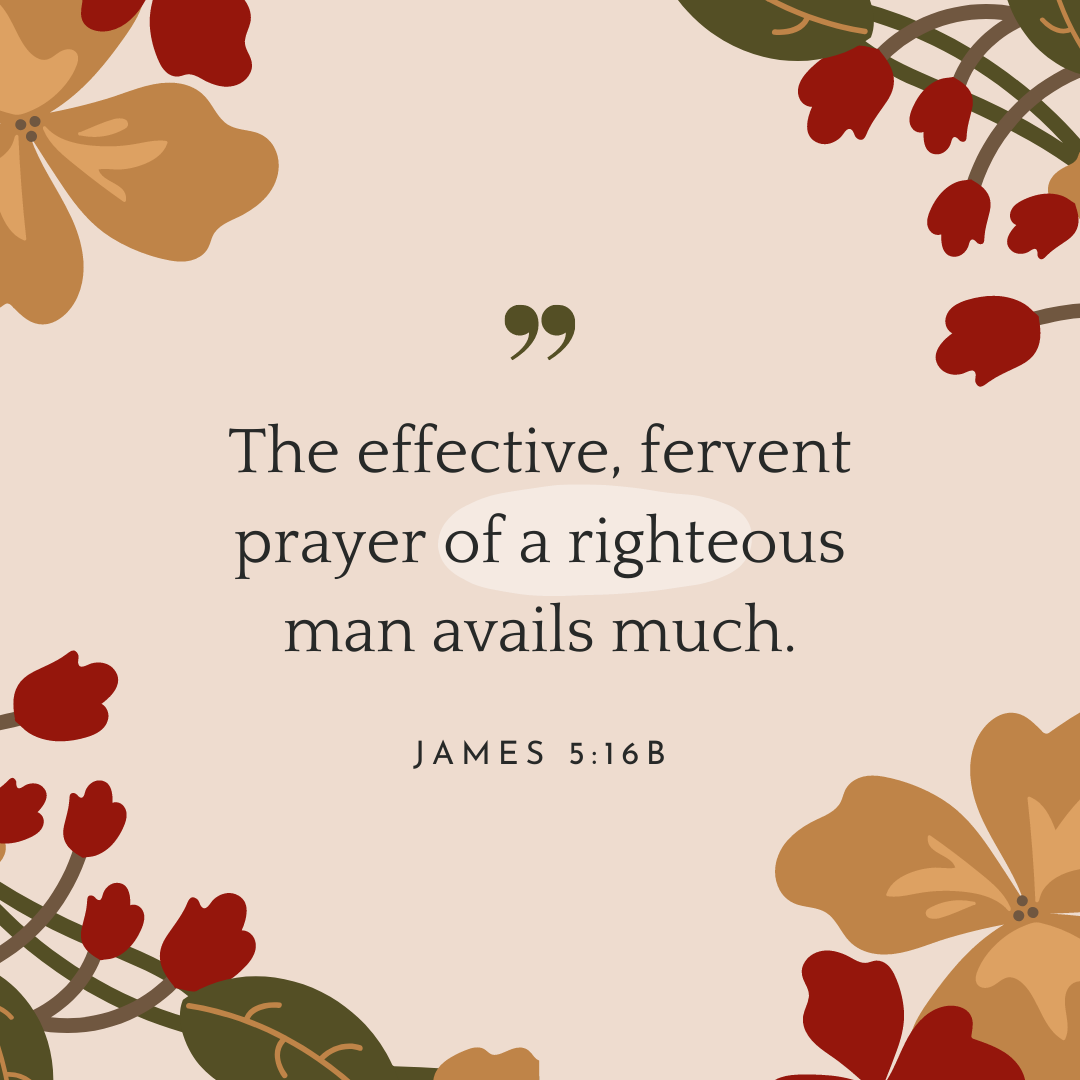Prayer is a major secret of relevance in life and destiny. Great generals of faith were men and women that were addicted to God and lived a lifestyle of prayer.
He that dwelleth in the secret place of the Most High shall abide under the shadow of the Almighty. I will say of the Lord, He is my refuge and my fortress: my God; in him will I trust. Psalm 91:1-2.
The Scriptures make it clear that praying is not just hit-or-miss. If a person is going to pray to be heard and to be answered, he must follow certain guidelines.
Jesus outlined some of those guidelines for us in the Sermon on the Mount. “In this manner, therefore, pray: “ Our Father in heaven, Hallowed be Your name” (Matt. 6:9).
He set up a proper formula for addressing our Father. When we recognize that fact and pray in accordance with God’s laws or rules concerning prayer, then we will certainly learn how to pray effectively.
- The Law of Faith
The first law is the law of believing. Prayers of doubt or fear will not indeed be strong prayers and will not yield results.
“But without faith, it is impossible to please Him, for he who comes to God must believe that He is and that He is a rewarder of those who diligently seek Him” (Heb. 11:6).
This law states that you must believe that God exists as a powerful, sovereign Lord. This law further states that you must believe that God will answer you (“is a rewarder”) when you pray.
Praying by faith is being assured that your prayer is being answered even before you prayed; it is praying from an answer point of view.
Faith is restful assurance that the answer is guaranteed. Praying in faith means that your prayer and your action are united. Faith is approaching God with a conviction beyond confusion.
Faithless prayer is useless prayer; it is futile.
Knowing the miraculous power of God in your life enables you to pray with the confident intensity that will make your prayers effective.
- The Law of Sincerity
Anyone in a place of total sincerity before God will discover a blessedness beyond anything he had hitherto dreamed. But there is a cost involved—the cost of commitment, of time. A minute of prayer here and a minute there—not praying today, if I feel like it, then forgetting to pray tomorrow—is not done in sincerity.
God cannot do great things in the life of such a person. But when the set laws of praying are discovered, practiced, and adhered to, the results will change your life! The time to begin praying is not when you are in trouble, as so many people do (I call that “foxhole praying.”). If you pray when things are right, God will come to your rescue when you are in trouble. I can guarantee it.
- The Law of Perseverance
Daniel prayed for three weeks to receive the understanding of a vision before the answer came. Three weeks! Would he have received the answer if he’d stopped on the fifteenth day? Or even the twentieth day? Of course not. But Daniel stuck to it; he prayed until the answer came. He persevered.
When Elijah prayed for rain on Mount Carmel, he prayed seven times. Each time he sent his servant to see if there were signs of rain and returned back and “there is nothing.” Seven times Elijah said, “Go again.” (1 Kings 18:43).
What if he had stopped at four times? Or five times? Or even six times? There would have been no rain and the drought would have continued. Elijah was a man of flesh and blood like you and me, the difference with Elijah and many people, is that Elijah knew the law of perseverance, and he held on until the victory came—total, blessed victory!
- The Law of Humility
Prayer will not be effective unless one approaches the Almighty in humility. A self-sufficient person will find it difficult to pray, because he has told himself and others, “I can take care of myself. I don’t need anybody. I don’t need God.” Certainly, this person will not receive anything from God.
But there is another kind of pride that prevents answers to prayers. This is the self-righteous person.
Luke 18:9-14 Also He spoke this parable to some who trusted in themselves that they were righteous, and despised others: 10 “Two men went up to the temple to pray, one a Pharisee and the other a tax collector. 11 The Pharisee stood and prayed thus with himself, ‘God, I thank You that I am not like other men—extortioners, unjust, adulterers, or even as this tax collector. 12 I fast twice a week; I give tithes of all that I possess.’ 13 And the tax collector, standing afar off, would not so much as raise his eyes to heaven, but beat his breast, saying, ‘God, be merciful to me a sinner!’ 14 I tell you, this man went down to his house justified rather than the other; for everyone who exalts himself will be [a]humbled, and he who humbles himself will be exalted.”
God can’t hear the prayers of pride-filled persons.
Prayers that are answered come from those who humble themselves before God. God says,
“If My people who are called by My name will humble themselves, and pray and seek My face, and turn from their wicked ways, then I will hear from heaven and will forgive their sin and heal their land” (2 Chron. 7:14).
Those who pray in humility will receive from God. Jesus said,
“Blessed are the poor in spirit, for theirs is the kingdom of heaven” (Matt. 5:3).
Those who come to God with praise will receive from God. Those who admit their need for God and His help will receive from Him. The truly humble are those who turn to God in the good times as well as the bad. They are the people who touch God’s loving heart, and they are the ones who will receive from Him.
5. The Law of Prayer Structure
The way we structure our prayers is important. If we are to pray effective prayers it is important to formulate our prayers properly.
Our prayers should exalt or glorify God. Our prayers should begin with God. Jesus said,
“In this manner, therefore, pray: “ Our Father in heaven, Hallowed be Your name” (Matt. 6:9).
Such a beginning speaks of one’s relationship to the Almighty—“Our Father.” It speaks of God’s dwelling place—“in heaven.” Also, the knowledge of and the acceptance of God’s holiness is articulated.
In other words, by opening our prayers as Jesus taught, our thoughts are immediately reminded of the divine nature of the One to whom we are directing our petitions. This is important.
Our prayers should usher the participant into the intimate, personal presence of the Almighty. Jesus stated, “When you pray, go into your room” (Matt. 6:6). Whether He meant our bedrooms or merely a special place is beside the point.
The point is that both the time and place of prayer should enable one to be apart from worldly, secular things long enough to make it possible for him to be with God and, thus, to commune with Him without interruption.
If one is to pray effectively, it is necessary for him to shut out the world, distractions, everything, and everybody, so he can become intimate with the Father. A room with a closed door could be that place. A quiet spot in the woods could be that place. Wherever you can be alone with God for a time, is a good place.
Daniel knew God better when he met Him regularly in a special place. Jacob knew God better when he had wrestled with Him all night.
You can know God better when you seek Him on a regular basis, after travailing with Him, being with Him long enough, consistently enough, and deep enough to become one with Him. It is then that you will become the kind of child of God He desires you to be. It is then that your prayers will be answered.
God is no respecter of persons. He loves you and me as much as He loved Daniel and Elijah. When we recognize the laws that govern prayer, when we learn how to approach God correctly, bringing our needs to Him in humility and with praise, our prayers will be answered and our faith will be built up.


